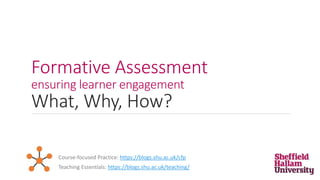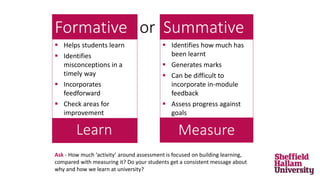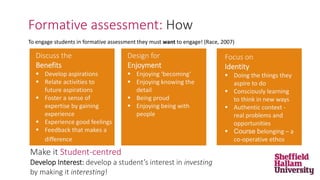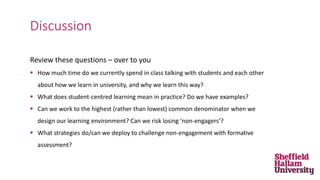Formative assessment ensures learner engagement by providing feedback to students and staff to help students learn and identify misconceptions. It assesses student progress towards goals through both informal and formal assessment activities integrated with feedback, unlike summative assessment which measures learning through marks. To effectively engage students in formative assessment, it should be student-centered, interesting, and develop their identity and interests in authentically relating their learning to future aspirations through enjoyment and a sense of belonging.






